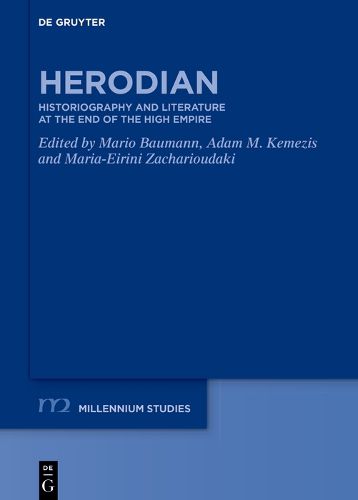Readings Newsletter
Become a Readings Member to make your shopping experience even easier.
Sign in or sign up for free!
You’re not far away from qualifying for FREE standard shipping within Australia
You’ve qualified for FREE standard shipping within Australia
The cart is loading…






Herodian (active c. 250 CE) was the author of an eight-book Greek history of the Empire from the reign of Commodus (180-192) to the civil wars of the year 238. It has always been a vital historical document, but recent scholarship also recognizes its importance for the development of Greek historiography. As part of this new interest, this collection of articles by leading and emerging scholars addresses important new questions about Herodian's work and cultural context. These include literary studies of his generic identity, his relationship to earlier and later authors and his techniques of creating time and space; applications of communication and memory theory to his narrative; exploration of his cultural attitudes to the heritage of Greek paideia; his cultural identity and evocation of iconic figures from the past; and his political ideology and conception of the Empire's functioning and dysfunction. Herodian emerges as a revealing witness of his own times, but also a talented literary artist and a perceptive analyst of the political upheavals through which he lived. These studies will be valuable to all scholars interested in the literary and cultural aspects of Rome's transition from the High Empire to Late Antiquity.
$9.00 standard shipping within Australia
FREE standard shipping within Australia for orders over $100.00
Express & International shipping calculated at checkout
Herodian (active c. 250 CE) was the author of an eight-book Greek history of the Empire from the reign of Commodus (180-192) to the civil wars of the year 238. It has always been a vital historical document, but recent scholarship also recognizes its importance for the development of Greek historiography. As part of this new interest, this collection of articles by leading and emerging scholars addresses important new questions about Herodian's work and cultural context. These include literary studies of his generic identity, his relationship to earlier and later authors and his techniques of creating time and space; applications of communication and memory theory to his narrative; exploration of his cultural attitudes to the heritage of Greek paideia; his cultural identity and evocation of iconic figures from the past; and his political ideology and conception of the Empire's functioning and dysfunction. Herodian emerges as a revealing witness of his own times, but also a talented literary artist and a perceptive analyst of the political upheavals through which he lived. These studies will be valuable to all scholars interested in the literary and cultural aspects of Rome's transition from the High Empire to Late Antiquity.